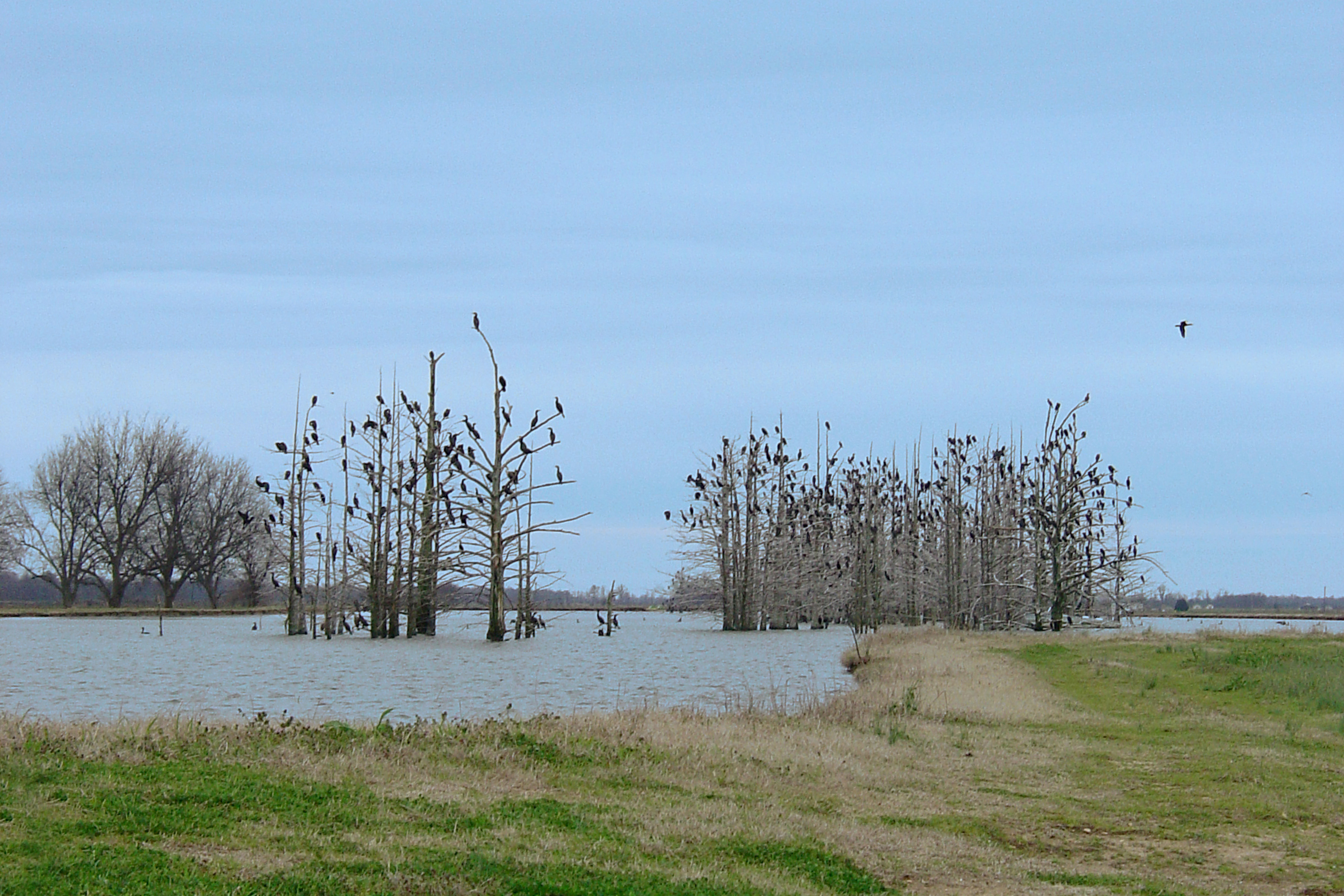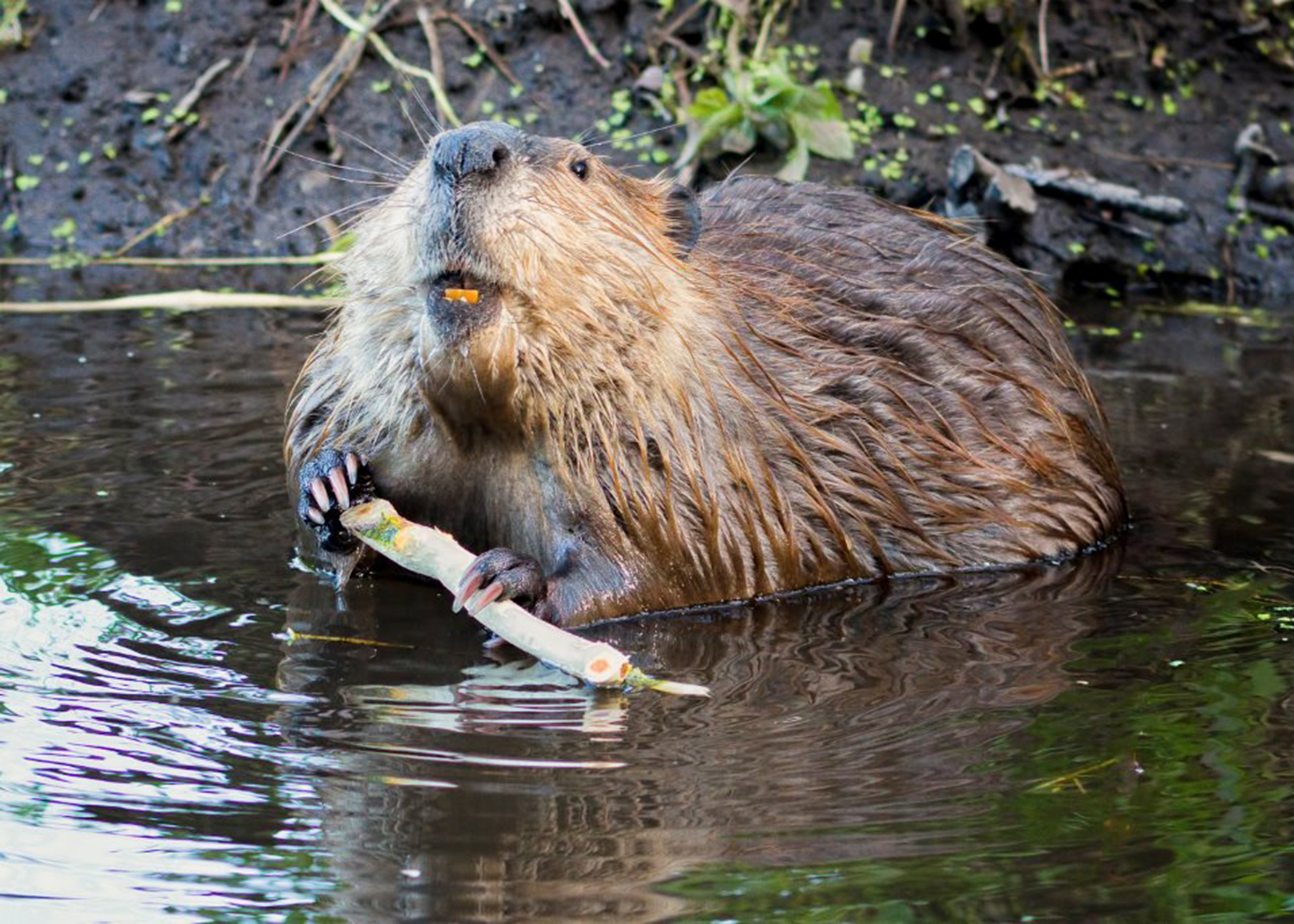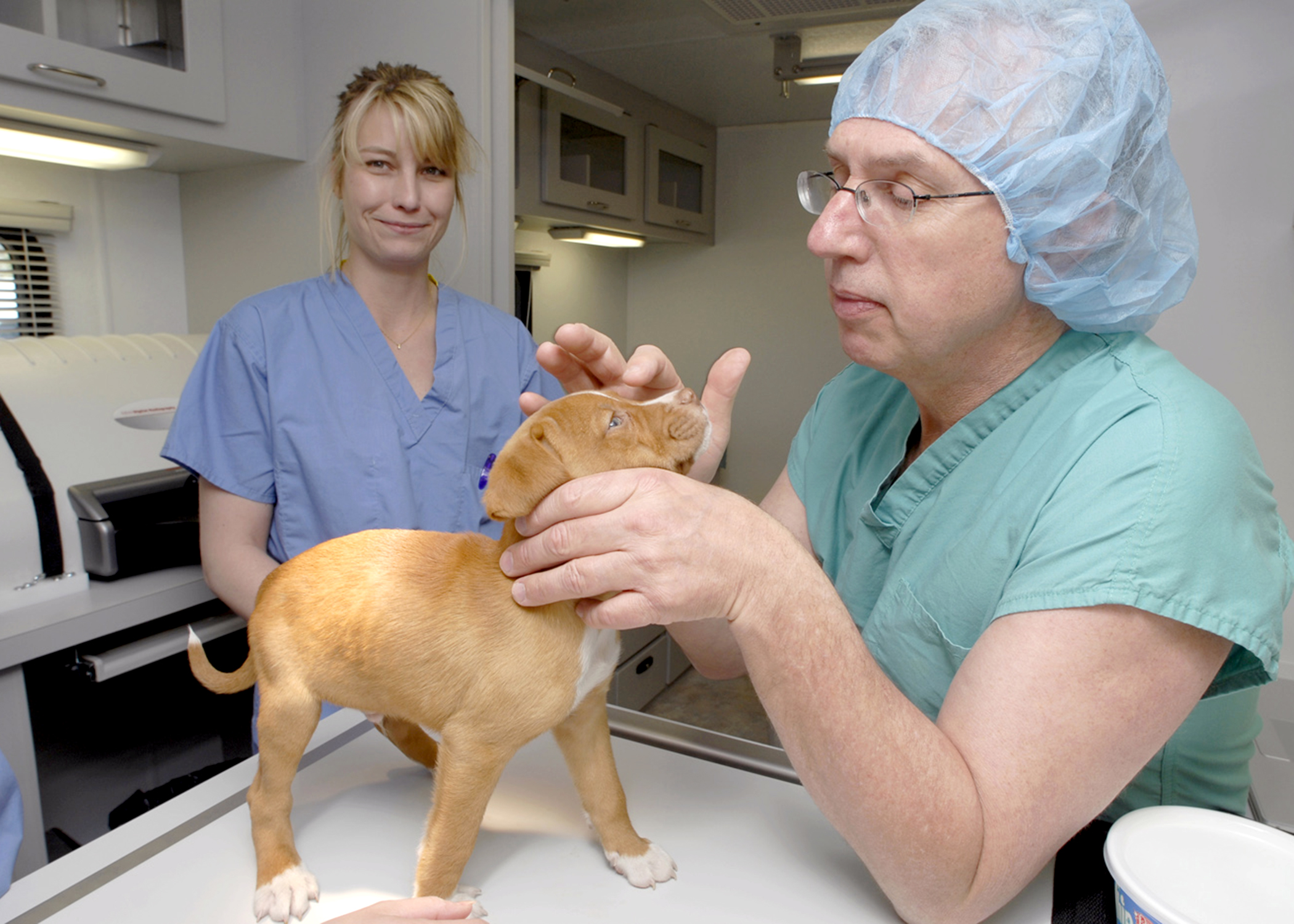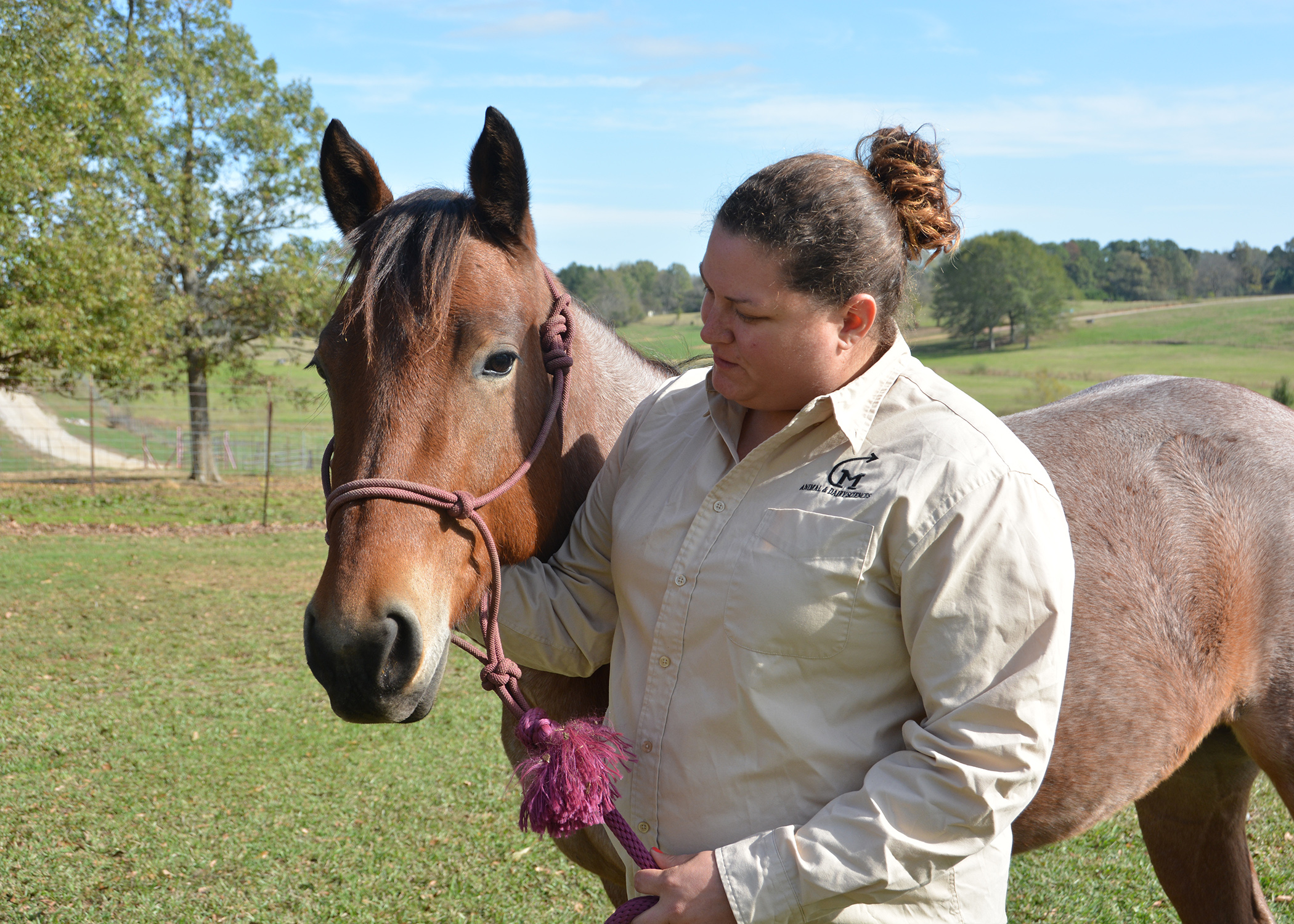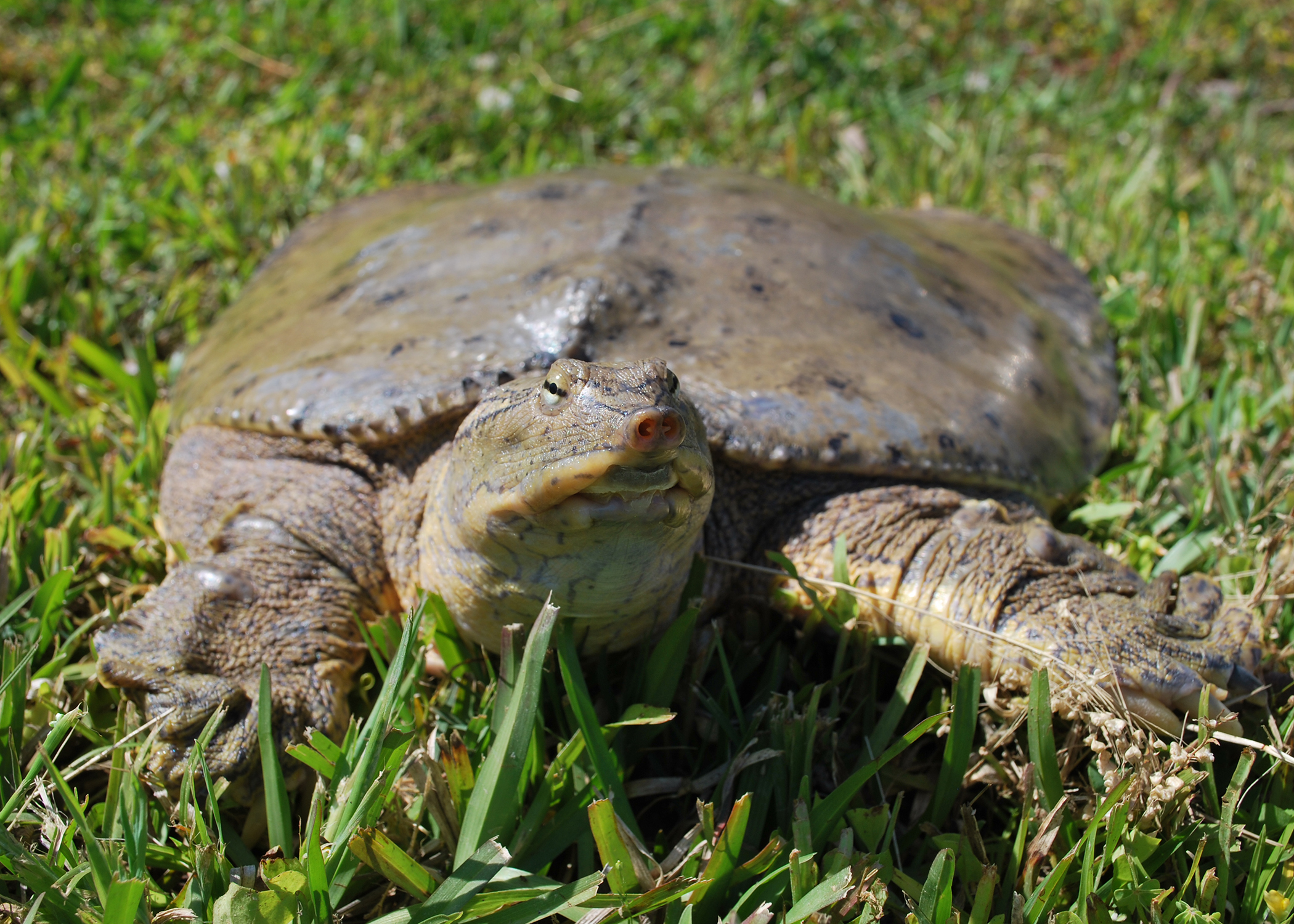STARKVILLE, Miss -- It’s a duck, it’s a goose...no, it’s a Cormorant?
The double-crested cormorant is a 4- to 6-pound bird with black or dark plumage. Often cormorants are mistaken for common waterfowl because they are seen swimming on ponds and lakes throughout Mississippi from late fall to early spring. Cormorants migrate each year from the Great Lakes region of the U.S. and Canada to spend their winters on the warm waters of the South. They really are snow birds!
Mark Peterman, on right, an aquaculture associate with the Mississippi State University Extension Service, shows a catfish to Weir Elementary students Taylor Hunt and Derrick Floyd at FARMtastic in Starkville on Nov. 20, 2015. FARMtastic is an experience-based Extension program that teaches kids where food, fiber and fuel come from. (Photo by MSU Extension Service/Kat Lawrence)
STARKVILLE, Miss. -- For an unassuming rodent, the beaver has quite a significant place in American history.
For more than 300 years, the beaver was one of the most valuable fur-bearing animals in North America and drove the fur trade, one of the earliest and most important industries in the development of the United States and Canada.
STARKVILLE, Miss. -- Twenty-four newly elected tax assessors and collectors from across the state spent three days at Mississippi State University this week honing the skills they will use when they take office next year.
The MSU Extension Service Center for Government and Community Development hosted a three-day orientation for new tax assessors and collectors. During that time, the officials received training in job functions, including property assessment, homestead exemption, vehicle title registration, appraisals and tax collection.
STARKVILLE, Miss. -- A professor emeritus with the Mississippi State University College of Veterinary Medicine received national recognition from the Association of Shelter Veterinarians.
Dr. Phil Bushby, the retired Marcia P. Lane Endowed Chair in Human Ethics and Animal Welfare, accepted the 2015 Association of Shelter Veterinarians Meritorious Award at an association meeting in New Orleans. Each year, the association’s board honors a veterinarian who has significantly advanced shelter medicine through leadership, public service, research, education and/or clinical practice.
STARKVILLE, Miss. -- Many Mississippians find it difficult to keep off the pounds during food-oriented holiday celebrations, and hidden calories make this problem even worse.
Ann Twiner, Mississippi State University Extension Service agent in Sunflower County, said turkey, ham and vegetables can be healthy choices, but consider how they are prepared when choosing whether to eat them and deciding how large a portion to take.
STARKVILLE, Miss. -- Bidding is underway on a variety of horses from the Mississippi State University research herd.
MSU is offering 24 horses, registered with the American Quarter Horse Association, through an online auction that will conclude at 6 p.m. Nov. 21. The sale includes five 2-year-olds that have been started under the saddle, five yearlings and 14 weanlings. Prospective buyers can read descriptions of each horse and see photos and video at https://auction.msucares.com.
Often, the person is concerned that turtles are eating his fish. Sometimes the turtles are eating the pond owner’s fish food. Other times, the caller has caught a turtle while catfishing and does not like dealing with the angry reptile on the end of his line. For one reason or another, turtles have a bad reputation in Mississippi ponds. Well, it is time to set the record straight on turtles!
People often take the importance of soil for granted. Soils provide the foundation for our homes, cities, and roads, and they also serve as the medium for crops and forests. Soils store and filter the groundwater that nourishes our lives. They provide for the diversity of plants and wildlife that Mississippians depend on for commerce and recreation.

